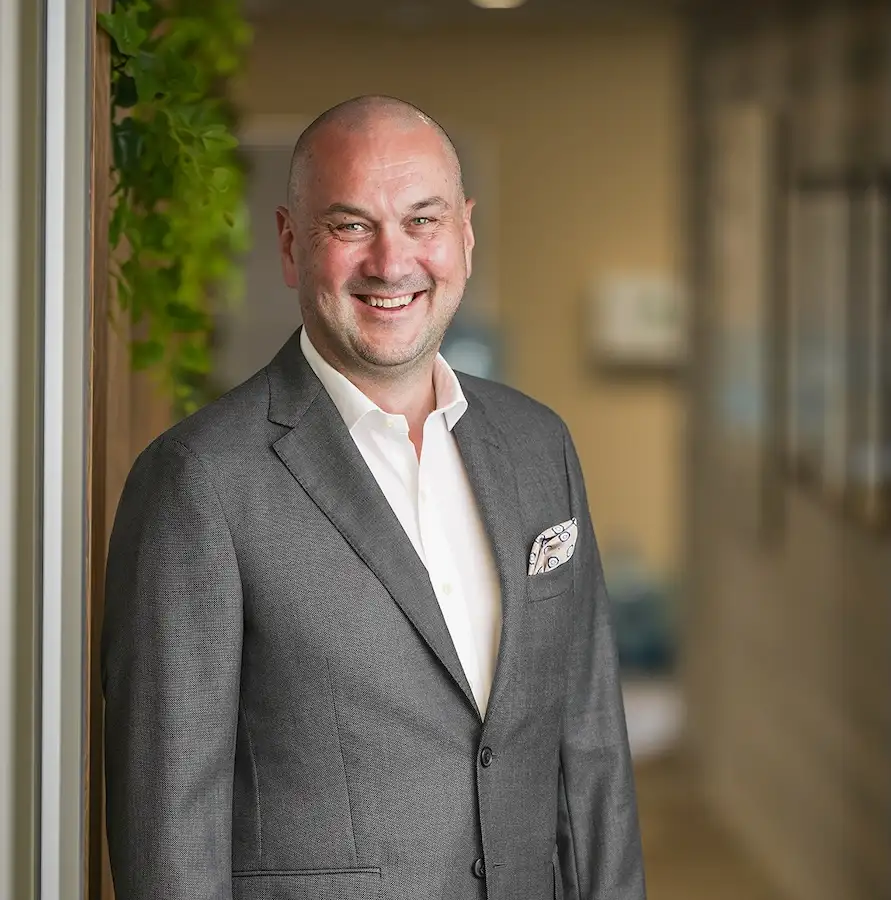As Africa’s digital transformation happens, one of the key enablers behind the scenes is infrastructure. This includes the data centers, power systems and cooling solutions that keep Africa’s digital economy running. Vertiv, a global provider of critical digital infrastructure, has been steadily building its presence in Africa and positioning itself at the intersection of AI adoption, sustainable power, and next-generation data centers.
In an interview with TechArena, Wojtek Piorko, Managing Director for Vertiv Africa, shared the company’s approach to serving the continent’s fast-growing technology ecosystem.
Pan-African Footprint
Vertiv operates five offices across the continent in Johannesburg (Africa HQ), Lagos, Casablanca, Nairobi, and Cairo. These offices are strategically located to support regional markets. The Nairobi office was opened three years ago in The Oval and serves Kenya and 15 surrounding countries.
Beyond sales and support, each location is equipped with a Customer Experience Center where clients can interact with Vertiv equipment, explore solutions via VR demonstrations, and even undergo technical certifications. In Nairobi, the team is 100% Kenyan talent, blending young energy with seasoned expertise in marketing, pre-sales, engineering, and technical support.
“Every time I visit Nairobi, I’m inspired by the energy and professionalism of our local team,” Piorko said.
Solutions for African
One standout offering is Vertiv’s hybrid solar DC power system. This is designed and manufactured for Africa. The system can switche between solar panels, batteries, diesel generators, and grid power. With this, it is able to provide uninterrupted supply. It can run fully off-grid and this makes it ideal for regions that have unreliable electricity.
This aligns with the push toward renewable energy integration in African infrastructure. Piorko noted growing use of solar and the untapped potential of hydropower.
Sectors Driving Demand
Piorko said the following three sectors are leading Vertiv’s African business:
- Data Centers – Spurred by national digitalisation programs, AI workloads, and investments from both global hyperscalers and local operators.
- Telecoms – Expanding networks while branching into data center operations, as has been seen with Airtel and MTN.
- Commercial & Industrial – Particularly mining, with projects like battery energy storage systems for remote operations.
Proactive and Reactive AI Adoption
AI is beginning to shape Africa’s infrastructure needs. Vertiv is involved in both proactive builds (such as the upcoming first AI factory in Africa) to be built by Cassava Technologies and reactive upgrades to existing facilities to handle AI’s higher power and cooling demands.
Power densities per rack have skyrocketed from 2–5 kW to over 250 kW. This has forced a shift toward liquid cooling solutions alongside traditional systems. Piorko said roughly half of new African projects now incorporate liquid cooling.
The Next Five Years: Trends to Watch
Piorko believes Africa’s young, data-hungry population will be the key driver of digital growth. Governments are introducing AI strategies, improving regulations, and investing in education before scaling AI adoption.
“AI can help address Africa’s education challenges and enable young people to create new solutions,” Piorko said.
Over the next five years, expect to see deeper renewable integration, rapid expansion of AI-ready infrastructure, and more regional collaboration between governments, private sector players, and global technology firms.
Partnerships and Projects
Vertiv partners with the Africa Data Center Association, the Uptime Institute, and a network of local distributors to deliver projects across the continent. In Kenya, the company supplied infrastructure for the National Transport and Safety Authority’s unified digital system for licenses and vehicle registration. Vertiv delivered a full modular data center in partnership with IPCS in Malawi.
Summary
Vertiv’s African strategy is a mix of global expertise, local talent, and region-specific innovation. From AI-ready facilities to hybrid solar power, the company is positioning itself as a key player in enabling Africa’s digital future. As power needs grow, workloads intensify and sustainability becomes non-negotiable.

